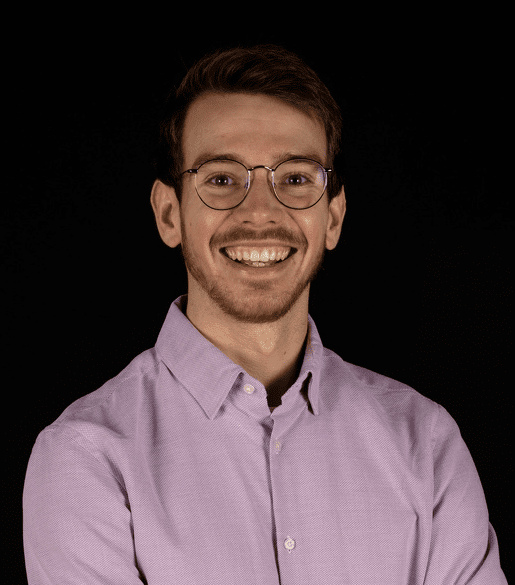Student Portraits
January 10, 2022
IVADO Student Portraits – William Glazer-Cavanagh
Our “IVADO Student Portraits” initiative consists of meeting students from our community to share their backgrounds, motivations and ambitions! We sat down with William Glazer-Cavanagh, software engineering undergraduate at Polytechnique Montréal.


- Can you tell us a few words about yourself?
My name is William Glazer-Cavanagh and I’m studying in software engineering at Polytechnique Montréal. I love technology, software and artificial intelligence and I hope to be part of the Montréal innovation ecosystem!
- Tell us about your academic journey.
Right now I’m in my last year of undergraduate studies at Poly, where I had the opportunity to do an introductory research internship funded by IVADO. As part of that internship, I attended the online Deep Learning Summer School, and later I helped develop the Deep Learning Essentials online course (MOOC). After immersing myself in the world of data, I had the chance to assist in founding the PolyAI club, which brings together artificial intelligence buffs. These experiences with the IVADO community then helped me do more research internships in AI and in data engineering.
- What motivated you to choose digital intelligence?
My first exposure to machine learning was via the Google Deep Dream algorithm a number of years ago. I was so blown away by the fact that a machine could generate that kind of imagery that I immediately became curious about digital intelligence. So I chose an academic path that would help me understand how those kinds of algorithms are created.
- What are you working on for your research project?
I’ll be starting my master’s next September, so I don’t yet have a research project assigned. I’m in the midst of considering my options for a thesis supervisor and project for next year, and there’s no shortage of opportunities in Montréal! The most recent project I worked on was part of my summer internship: I had the chance to take part in a project involving automated explanation of the performance of stock market shares to assist asset managers. A major part of that was Natural Language Processing (NLP) automation, to understand how to explain a stock’s performance using a corpus of texts.
- Any particular qualities that are serving you well for this project?
As with any research project, you need a great deal of scientific rigour so as not to take anything for granted. You also have to be creative in order to find new sources of information and new solutions to problems that often occur with cutting-edge technologies. Lastly, you need to be a good communicator, as with any team project, to make sure you understand properly and others understand you.
- You contributed to a MOOC project with IVADO as a scientific assistant. What did you learn from that experience?
I helped publish the Deep Learning Essentials MOOC online (by the way, this is an excellent introductory course on DL!). Early on in my studies, I was able to gain insight into the mechanisms behind deep learning, which was a huge help to me in my courses, when I needed to bring a more rigorous perspective to these concepts.
- What are your ambitions for the future?
I’d like to use my knowledge of software engineering and digital intelligence to help advance the field. There are so many impressive developments revolutionizing various fields, from medicine to biochemistry to finance and more. I want to play a role either by actively participating in fundamental research or putting my knowledge to use in a more applied project.
- Any resources to share?
For an entertaining online experience: https://deepdreamgenerator.com/
For an introduction to DL: https://www.edx.org/course/deep-learning-essentials
- What have your projects brought to you on a personal and academic level?
Every project I’ve worked on has shown me a different facet of digital intelligence. Software engineering, which is a complex and highly applied field, has given me insight into the challenges that industries face in implementing digital intelligence. My involvement in the PolyAI student committee showed me how complex training young professionals can be. Lastly, the research I did at the intersection of NLP automation and finance has given me solid fundamentals for industry research.